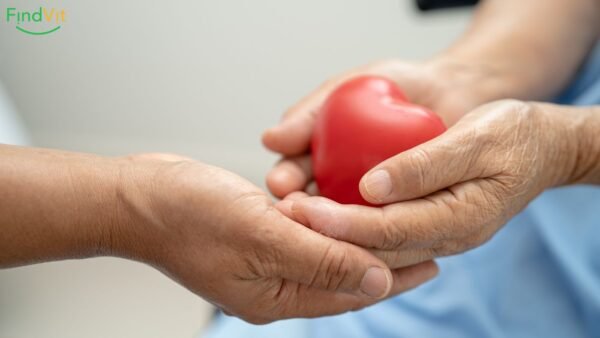
Kaip Sustiprinti Širdį: Kardiologų Patikrinti Metodai Be Vaistų
Kasmet pasaulyje nuo širdies ir kraujagyslių ligų miršta apie 17 milijonų žmonių, ir šios ligos išlieka pagrindinė lietuvių mirties priežastis. Tačiau gera žinia ta, kad…

Chronic diseases are more common in old age.
Although genetics play a small role in life expectancy and susceptibility to these diseases, lifestyle probably has a greater impact.
There are several places in the world that are called "Blue Zones". The term refers to geographic areas where people have low rates of chronic disease and live longer than anywhere else.
This article describes the common lifestyle traits of people in the blue zones, including why they live longer.
The "Blue Zone" is a non-scientific term given to geographic regions that are home to some of the world's oldest humans.
It was first used by author Dan Buettner, who was researching areas of the world where people live exceptionally long lives.
These areas are called the Blue Zones because when Buettner and his colleagues searched for these areas, they drew blue circles around them on the map.
In his book Blue Zones, Buettner described five known Blue Zones:
Although these are the only areas discussed in Buettner's book, there may be unidentified areas of the world that could also be blue zones.
Several studies have shown that these areas have a very high population where people live over 90 and 100 years respectively.
Interestingly, genetics probably only accounts for 20-30% of longevity. Therefore, environmental influences, including diet and lifestyle, play a huge role in life expectancy.
Below are some of the daily diet and lifestyle factors that are common to people living in blue zones.
Briefly:
Blue zones are areas of the world where people live exceptionally long lives. Studies have shown that genetics only play a 20-30% role in longevity.
One thing that is characteristic of the blue zones is that the people who live there eat primarily 95% plant foods.
Although most groups are not staunch vegetarians, they tend to eat meat only about five times a month.
Numerous scientific studies have shown that eating meat in moderation can significantly reduce the risk of death from heart disease, cancer, and many other different causes.1
Instead of a large amount of meat, the daily diet in the blue zones usually consists of:
Not all of us supplement our daily diet with the right amount of fiber or nutrients. It is recommended to supplement if there is a deficiency:
There are several other nutritional factors that define each blue zone.
For example, fish is often eaten in Icaria and Sardinia. It is a good source of omega-3 fats, which are important for heart and brain health.
Eating fish has been linked to slower brain decline in old age and reduced heart disease.
Not all people like fish or fish dishes. It is recommended to supplement the diet with high-quality fish oil:
Briefly:
People in blue zones tend to eat a 95% plant-based diet rich in legumes, whole grains, vegetables and nuts, all of which can help reduce the risk of death.
Other habits characteristic of blue zones are reduced calorie intake and starvation.
Long-term calorie restriction can help with longevity.
A large, 25-year study of monkeys showed that eating 30% with fewer calories than normal led to significantly longer monkeys' lives.4
Eating fewer calories may contribute to longer life in some blue zones.
For example, research in Okinawa shows that until the 1960s, residents were in a calorie deficit, meaning they ate fewer calories than they needed, which may have contributed to their longevity.
Also, Okinawans tend to follow the 80% rule, which they call "hara hachi bu". This means they stop eating when they feel 80% full, not 100% full. They understand that satiety comes later. This prevents overeating and weight gain.
Several scientific studies have also shown that eating slowly can reduce hunger and increase satiety compared to eating quickly.5
This may be because the hormones that make you feel full don't peak until 20 minutes after you eat.
Therefore, by eating slowly and only until you feel 80% full, you can eat fewer calories and feel full longer.
In addition to consistently reducing total caloric intake, intermittent fasting appears to have health benefits.
For example, the Icarians, Greek Orthodox Christians, are a religious group that has many fasting periods throughout the year for religious festivals.
One study found that fasting during these religious holidays lowered blood cholesterol and lowered body mass index (BMI).
Many other fasting methods have also been shown to reduce people's weight, blood pressure, cholesterol, and many other risk factors for chronic disease.6
These all include intermittent fasting, which is for certain hours of the day or certain days of the week, and fasting, which involves fasting for several days in a row for a month.
Briefly:
Calorie restriction and intermittent fasting are common in blue zones. Both of these practices can significantly reduce the risk factors for certain diseases and prolong a healthy life.
Another dietary factor common to many blue zones is moderate alcohol consumption.
There is mixed evidence as to whether moderate alcohol consumption reduces the risk of death.
Many studies have shown that drinking one to two alcoholic drinks a day can significantly reduce mortality, especially from heart disease.7
However, a very recent study found that there was no real effect when other lifestyle factors were taken into account.
The positive effects of moderate alcohol consumption may depend on the type of alcohol. Red wine may be the best type of alcohol, given that it contains many antioxidants from grapes.
Consuming one to two glasses of red wine per day is especially common in the Icarian and Sardinian Blue Zones.
In fact, Sardinian Cannonau wine made from Grenache grapes has been shown to have very high levels of antioxidants compared to other wines.
Antioxidants help prevent DNA damage that can contribute to aging. Therefore, antioxidants may be important for longevity.
More information about antioxidants and their importance can be found in the category:
A couple of studies have shown that drinking very moderate amounts of red wine is associated with slightly longer life expectancy.
However, as with other studies of alcohol consumption, it is unclear whether this effect is due to the fact that wine drinkers also tend to live healthier lives.
Other studies have shown that people who drank a glass (150 ml) of wine every day for six months to two years had significantly lower blood pressure, lower blood sugar levels, more "good" cholesterol and improved sleep quality.8
It is important to note that this benefit is only seen with moderate alcohol consumption. Each of these studies also found that higher levels of alcohol consumption actually increased the risk of death.
Briefly:
People in some blue zones drink one to two glasses of red wine a day, which may help prevent heart disease and reduce the risk of death.
In addition to daily nutrition, exercise is another very important factor in aging.
In the blue zones, people do not exercise by purposefully going to the gym. Instead, movement and the vagina are integrated into their daily lives through gardening, walking, cooking and other daily activities.
A study of men in Sardinia's blue zone found that their longer lives were associated with raising farm animals, living on steeper mountains and walking longer distances to work.
The benefits of these regular activities have previously been proven in a study involving more than 13,000 men. The distance they walked or the stories about the stairs they climbed each day predicted how long they would live.10
Other studies have shown the benefits of exercise in reducing the risk of cancer, heart disease and overall death.
Current American Physical Activity Guidelines recommendations suggest at least 75 minutes of vigorous-intensity or 150 minutes of moderate-intensity aerobic activity per week.
A major scientific study was conducted in America involving more than 600,000 people. The study found that those who did 150 minutes of moderate-intensity exercise per week had a 20% lower risk of death compared to those who did no physical activity.11
Even more exercise can reduce the risk of death by up to 39%.
Briefly:
Moderate physical activity that is part of everyday life, such as walking and climbing stairs, can help prolong life.
In addition to exercise, it appears that adequate rest and a good night's sleep are also critical to living a long and healthy life.
People in the blue zones get enough sleep and also often sleep during the day.
Several studies have shown that not getting enough or too much sleep can significantly increase the risk of death, including heart disease or stroke.
A large analysis of 35 studies found that seven hours was the optimal amount of sleep. Shorter or longer sleep duration was associated with an increased risk of death. More information about the optimal 7 hours of sleep can be found in the article: Scientists have found that 7 hours of sleep is best for middle-aged people
In blue zones, people do not tend to go to sleep, go to work at set hours. They just sleep as much as their body tells them to.
In certain blue zones such as Icaria and Sardinia, daytime sleeping is also common.
Several studies have shown that daytime sleep, known as "siesta" in many Mediterranean countries, has no negative effect on the risk of heart disease and death and may even reduce this risk.
However, the duration of the afternoon nap seems to be very important. A nap of 30 minutes or less can be beneficial, but sleep that lasts longer than 30 minutes is associated with an increased risk of heart disease and death.
Briefly:
People in blue zones get enough sleep. Getting seven hours of sleep a night and no more than 30 minutes of sleep a day can help reduce the risk of heart disease and death.
In addition to daily diet, exercise and rest, other social and lifestyle factors are characteristic of Blue Zones and can contribute to the longevity of those who live there.
Briefly:
Factors other than daily diet and exercise play a role in longevity. Religion, purpose in life, family and social life can also affect how long you live.
Blue zone areas are home to some of the oldest and healthiest people in the world.
Although their lifestyles vary slightly, they tend to eat a plant-based diet, exercise regularly, drink moderate amounts of alcohol, get enough sleep, and have good spiritual, family, and social connections.
Each of these lifestyle factors has been shown to be associated with longer life.
By incorporating them into your lifestyle, it may be possible to add a few years to your life.
It is important to rememberthat everyone's health is individual and there is no common recipe for everyone!
So, if you want to know if your body might be lacking nutrients right now, health professionals recommend a guide – "Your Day".

Kasmet pasaulyje nuo širdies ir kraujagyslių ligų miršta apie 17 milijonų žmonių, ir šios ligos išlieka pagrindinė lietuvių mirties priežastis. Tačiau gera žinia ta, kad…

Artificial intelligence in medicine has made impressive progress – it has already successfully passed medical licensing exams and can handle internal medicine cases. Even more impressive is that special…

The human heart beats an average of more than 2.5 billion times during a lifetime. This amazing organ works tirelessly to maintain a vital pulse rhythm, the rate of which (pulse rate)…

KIKI Health Zeolitas - Ceolitas, milteliai, 60 g

Trace Minerals Mega Magnesium 400 mg. Liquid with minerals, 118 ml.

KIKI Health Zeolitas - Ceolitas su aktyvuota anglimi, milteliai 60 g.

KIKI Health Zeolitas - Ceolitas, milteliai, 120 g.

SUPER OMEGA-3 - norvegiški žuvų taukai su Omega-3, didelė koncentracija, 100+30 kapsulių
| Cookie | Duration | Description |
|---|---|---|
| cookielawinfo-checkbox-advertisement | 1 year | Šį slapuką nustato GDPR Cookie Consent papildinys. Slapukas naudojamas išsaugoti vartotojo sutikimą dėl slapukų kategorijoje „Analitiniai“. |
| cookielawinfo-checkbox-analytics | 11 mėnesių | Šį slapuką nustato GDPR Cookie Consent papildinys. Slapukas naudojamas išsaugoti vartotojo sutikimą dėl slapukų kategorijoje „Analitiniai“. |
| cookielawinfo-checkbox-functional | 11 mėnesių | Slapukas nustatomas pagal GDPR slapukų sutikimą, kad būtų įrašytas vartotojo sutikimas dėl slapukų kategorijoje „Funkciniai“. |
| cookielawinfo-checkbox-necessary | 11 mėnesių | Šį slapuką nustato GDPR Cookie Consent papildinys. Slapukai naudojami saugoti vartotojo sutikimą dėl slapukų kategorijoje „Būtini“. |
| cookielawinfo-checkbox-others | 11 mėnesių | Šį slapuką nustato GDPR Cookie Consent papildinys. Slapukai naudojami saugoti vartotojo sutikimą dėl slapukų kategorijoje „Kiti“. |
| cookielawinfo-checkbox-performance | 11 mėnesių | Šį slapuką nustato GDPR Cookie Consent papildinys. Slapukai naudojami saugoti vartotojo sutikimą dėl slapukų kategorijoje „Vykdymas“. |
| elementor | never | Šį slapuką naudoja svetainės „WordPress“ tema. Tai leidžia svetainės savininkui realiuoju laiku įdiegti arba keisti svetainės turinį. |
| viewed_cookie_policy | 11 mėnesių | Slapuką nustato GDPR Cookie Consent įskiepis ir jis naudojamas norint išsaugoti, ar vartotojas sutiko, kad būtų naudojami slapukai, ar ne. Jame nesaugomi jokie asmens duomenys. |
| Cookie | Duration | Description |
|---|---|---|
| _ga | 2 metai | _ga slapukas, įdiegtas Google Analytics, apskaičiuoja lankytojų, seansų ir kampanijos duomenis, taip pat seka svetainės naudojimą svetainės analizės ataskaitoje. Slapukas išsaugo informaciją anonimiškai ir priskiria atsitiktinai sugeneruotą skaičių unikaliems lankytojams atpažinti. |
| _ga_JWS80V051Z | 2 metai | Šį slapuką įdiegė Google Analytics. |
| omnisendSessionID | 30 minučių | Šį slapuką nustato teikėjas Omnisend. Šis slapukas naudojamas unikaliam seanso ID nustatyti. Slapukas statistiniais tikslais renka informaciją apie lankytojų elgesį svetainėje. |
| soundestID | sesijos metu | Šį slapuką nustato teikėjas Omnisend. Šis slapukas naudojamas norint nustatyti, ar lankytojas svetainėje yra naujas, ar lankytojas lankėsi anksčiau. |
| Cookie | Duration | Description |
|---|---|---|
| omnisendAnonymousID | 1 year | Šį slapuką nustato teikėjas Omnisend. Šis slapukas naudojamas išsaugoti vartotojo veiksmą svetainėje su unikaliu ID. Slapukas užšifruoja lankytojo duomenis, kad būtų apsaugoti naudotojo duomenys. |
| soundest-views | sesijos metu | Aprašymas negalimas. |
| woocommerce_recently_viewed | sesijos metu | Aprašymas nepasiekiamas. |
